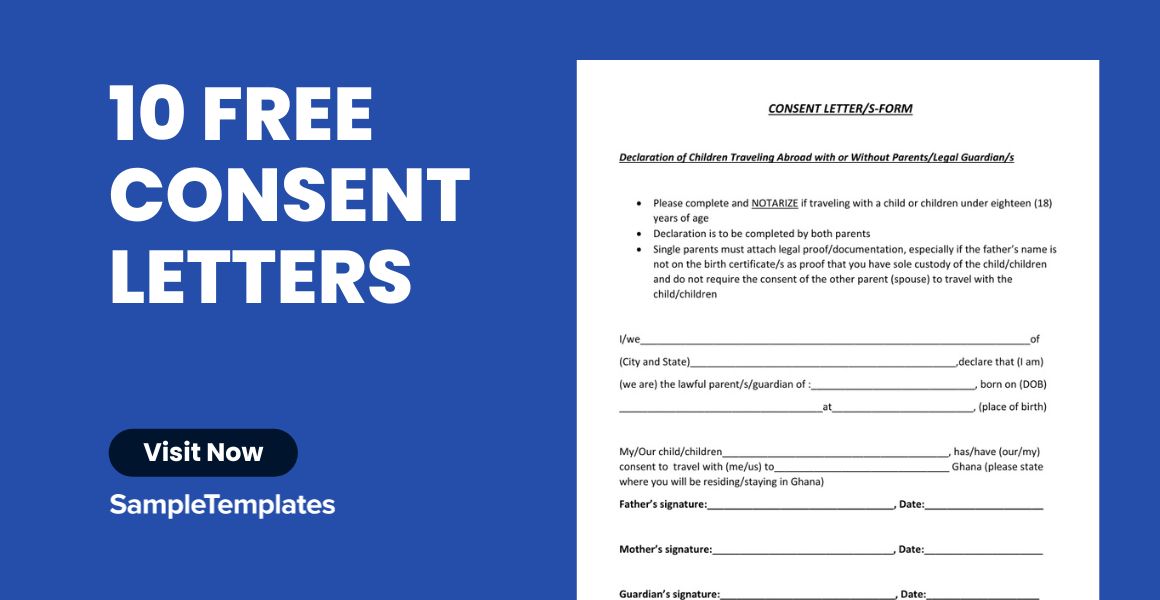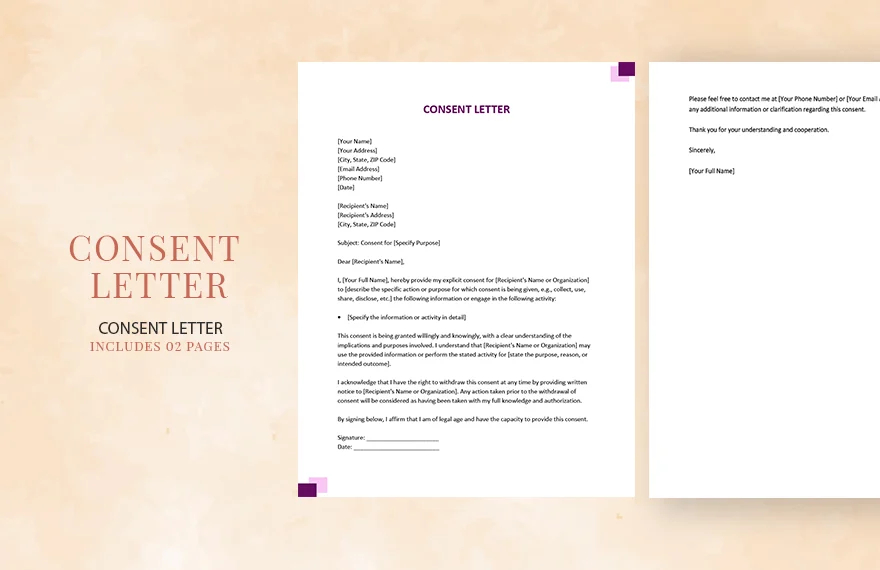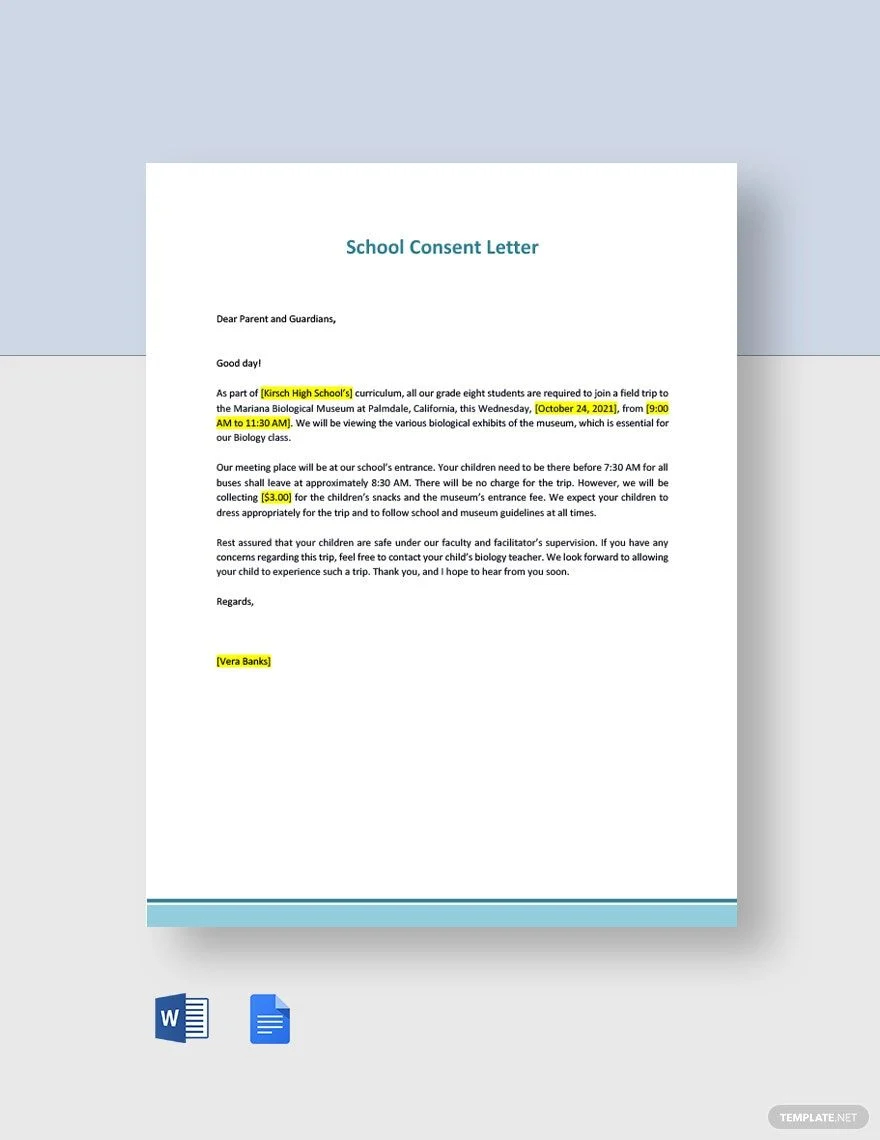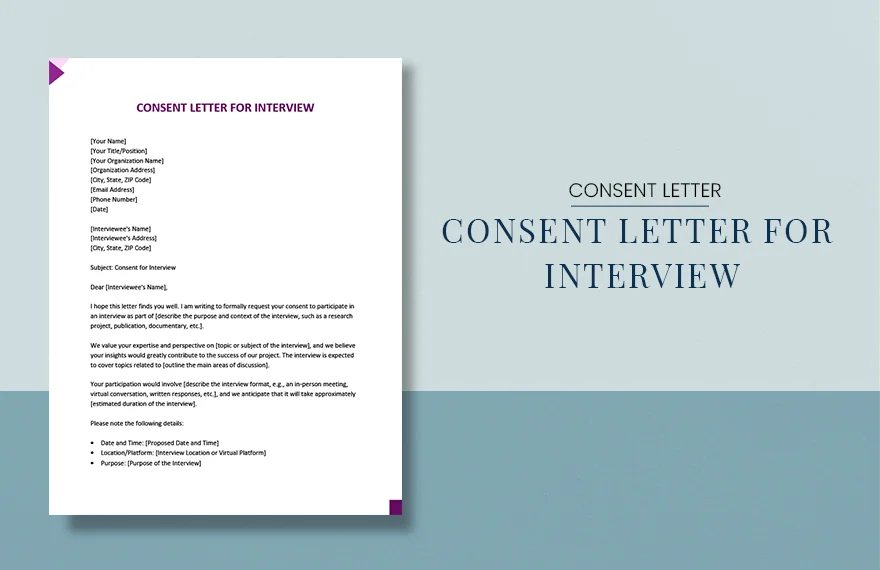

Consent is a vital aspect of any agreement or decision, and a well-crafted consent letter is the cornerstone of clear and respectful communication. Our Sample Consent Letter Template is designed to guide you through the process of creating a professional and effective letter. Tailored to suit a variety of contexts, this template simplifies the task of drafting a consent letter. Whether you need it for medical, legal, educational, or personal purposes, our template ensures your intentions are communicated clearly and consent is obtained in a respectful and legally sound manner. With this template, you can confidently navigate the nuances of consent, ensuring all parties are informed and in agreement.



A consent letter is a formal document that grants permission or expresses approval for certain actions or decisions. It serves as a written record of consent, ensuring that all parties involved are aware of and agree to the terms specified. This type of letter is crucial in a variety of contexts, such as medical treatment, legal procedures, educational activities, or even in personal scenarios like parental consent for a child’s travel or participation in an event.
In the medical field, consent letters are used to authorize medical treatments or procedures. They ensure that the patient or their legal guardian understands the nature of the treatment, the associated risks, and the potential outcomes. This informed consent is fundamental in the medical community, respecting the patient’s autonomy and right to make decisions about their own health.
Legal consent letters come into play in situations requiring legal authorization, like the management of property, legal representation, or in legal settlements. They are crucial in documenting that all parties involved have agreed to the terms and conditions set forth in a legal agreement or decision.
In the educational domain, consent letters are often used for field trips, extracurricular activities, or other events where a child’s participation requires parental or guardian approval. These letters protect educational institutions by ensuring that they have received explicit permission from the child’s responsible adult.
For travel, particularly when a minor is traveling without their parents or guardians, a consent letter is often required. This letter typically includes details about the travel, the accompanying adult, and emergency contact information. It is essential for ensuring the safety and security of the minor during their travel.
Consent letters also play a role in research, especially when human subjects are involved. Researchers use consent letters to explain the nature of the study, what participation involves, the risks and benefits, and the rights of the participants, including their right to withdraw from the study at any time.
In all these contexts, the key elements of a consent letter include a clear statement of consent, details about the specific action or decision being consented to, and often, the reason for consent. It should be written in clear, unambiguous language to avoid any misunderstandings. Additionally, the letter must be signed and dated by the person giving consent, and in some cases, it may require a witness or notarization to be legally binding.
Overall, a consent letter is a versatile and essential document that plays a critical role in various sectors, ensuring clarity, mutual agreement, and adherence to legal and ethical standards.